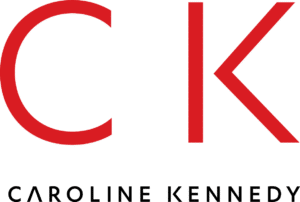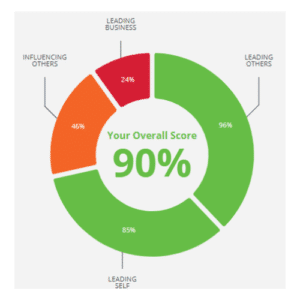Are you a leader or a controller?
Are you a leader or a controller?
Have you ever stopped to consider your leadership style? Do you lead your team or control them?
I recently asked these questions of my client. I wanted him to reflect on his interactions with the team. As I listened to him, I felt he was making excuses for his leadership performance by blaming other people. “I was late because I had to check something. “He wasn’t meeting my deadlines, so I had to do it myself.” The impression I received was one of manager, not a leader. He was so focused on micro-managing that his own performance suffered.
Are you leading or controlling your team?
Think about your behaviour
Look back over you’re the way you’ve worked with the team especially on big projects or tight deadlines. Did you continually check up on team progress? Did you listen to their ideas or tell them what to do? Do things have to be done your way? Do you slow the team down by interfering in their work?
If you’re not getting out of their way, you are probably trying to control them.
What need is it meeting?
It’s unlikely you try to control people because you enjoy it. You have a need that it’s meeting. My client realised he was a perfectionist and hated the idea that the work might not reach his impossibly high standards.
The need to control usually springs from some sort of trigger that you might not be aware of. Often, it’s a need for approval or to be held in high esteem by your colleagues. Most people operate unconsciously and are unaware of their habits, behaviours and patterns. If you’re not sure of your needs, try checking your thought process next time you step in to take control. You’re protecting yourself from something and the clues will be in your excuses. Once you discover what’s driving you, you can deal with it.
How to handle it.
Recognising the problem is the first step. Accepting it is the second. My client had never considered himself a perfectionist. In his mind, he was teaching his team how to do things “the right way.” He eventually came to realise that there was more than one way to work and that his team was experienced enough to get the job done.
To meet his need to feel a sense of control over the work process, I suggested that my client set some ground rules with his team. They discussed how they’d work together and set clear expectations of each other. They agreed on what the team could do and when they needed to seek approval. They also created a process for checking in as a team, so everyone knew what stage they were up to.
While this eased my client’s fear of losing control and was a constructive way to meet his need, it was also a great way to rebuild trust with his team.
Learn to live with uncertainty. There are things in life we just can’t control, and you must accept that. You can’t force people or circumstances to bend to your will, but you can influence them. Rather than trying to impose your will on things out of your control, focus on the things you can. Concentrate on giving your team what it needs to get the job done and let them do it. Will they meet your standards? Who knows! But you can be sure their performance will improve as their confidence does.
Change your thinking. Instead of worrying about what might go wrong or not be good enough, look for the positives. There’s an opportunity in every situation but you’ll have to remind yourself to look for it. For example, when you let your team have control, the positives might include:
- Freeing up your time for a project which is important to you
- Opportunities to train your team
- Increased team productivity
- Building better relationships with your team
When you change your mindset about control and learn to lead yourself so you can lead your team, you’ll develop a more balanced approach to life.
Will it be easy to stop being a controller? No, but with some perseverance on your part, it can be done.
My new program, Master Influencing, will help you shift from control to influence so you can achieve the results you want without stressing yourself or your team. Sound good? Give me a call on 1300 88 53 94 and let’s talk.
Now is the time to do it. Come on, come join me...
If you’re ready to work on your leadership skills, I can help you. Book a free Leadership Mastery Analysis with me and become the best leader you can be.
HOW WELL DO YOU LEAD YOURSELF, LEAD OTHERS AND LEAD IN BUSINESS?
DISCOVER YOUR LEADERSHIP SCORE - TAKE THE TEST - CLICK HERE
P.S. Whenever you’re ready… here are 4 ways I can help you intensify your impact, influence and income.
1. Grab a Copy of my Latest Book (available in all good bookstores, and on Audible)
Lead Beyond 2030 shares the nine skills you need to intensify your leadership impact. A powerful exploration of what separates great leaders from the rest. - Find Out More
2. FREE - Test Your Leadership Scorecard:
Discover your leadership score and the 9 leadership accelerators to increase your ability to intensify your impact and performance. — Click Here
3. Join our Master Influence Program and be a Case Study
If you're ambitious, this is for you - I’m putting together a new leadership case study group… stay in touch for details. If you’d like to work with me to master the art of influence and unleash your most powerful self…Click Here
The ability to influence is the greatest accelerator of impact and performance, and it intensely affects our career, our income and how we lead people. — Find Out More
4. Work with me privately
If you’d like to work with me privately to take your career, impact and leadership to the next level… send me a message and with the word “Privately”… tell me about yourself and what you'd like to focus on together and achieve, and I’ll get you all the details! — Click Here
Caroline Kennedy, author of Lead Beyond 2030: The Nine Skills You Need to Intensify Your Leadership Impact, is an accomplished, award-winning CEO and global thought leader on business and leadership. She is a highly sought-after mentor and coach to top global executives. A respected keynote speaker and author, Caroline’s methods are neuroscience-based to achieve rapid development and growth.


